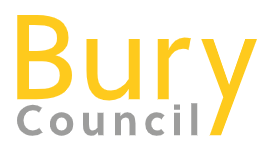Press release -
Citizens Advice launches campaign to expose scammers’ tricks
Bury’s trading standards team is urging people to spread the word about scams and expose the tactics of fraudsters to protect others.
July is Scams Awareness Month, and Citizens Advice are encouraging residents to follow a three-step rule - get advice, report it, and tell others about it.
Research shows that scammers are using a variety of tactics to get people to part with their cash, and each fraud costs £2,500 on average.
Methods include vishing, where scammers cold-call people in a bid to get their bank details, and offers of fake services, such as telling people their computer has a virus which they can fix remotely.
Investment scams carried the highest price tag, with people investing in fake diamonds or bogus stocks and shares losing an average £20,000 each.
In Bury, trading standards officers have helped people targeted by scams. An example is below:
A building society phoned trading standards to raise concerns about a customer who had been unusually withdrawing large amounts of cash. It turned out that the customer had sent more than £20,000 via money gram in order to receive a promised PPI claim.
The scammers were telephoning the victim daily, each time promising increased rewards and building up a relationship. They even returned some of the money when questioned to enable the scam to continue, and said the money was being sent by special delivery by Royal Mail.
This made it very hard for the victim to understand that it was a scam, and made her refuse to listen to the advice of friends, family and trading standards.
The total amount discovered to have been sent by the victim was closer to £30,000, which was most of her life savings. The scammers appear to have been based abroad, but could not be located.
Council officers worked with the victim and her family to educate them on scams.
Angela Lomax, head of trading standards and licensing at Bury Council, said: “Scams are not a minor blight; they heap misery on people and in some cases they can lead to financial ruin.
“Fraudsters use sophisticated techniques to con people and, because they vary their methods, it can be tricky to spot when something is a scam. If you come across something that seems suspicious, seek advice so you don’t put yourself at risk.
“It’s vital to report scams and spread the word so we can clamp down on con artists and stop others falling into the same traps.”
Eight common scams reported to Citizens Advice are:
- Investment - victims are persuaded to invest money into fake ventures and are then unable to get their money back.
- Fake services - people are offered a service for a fee, only to find the service isn’t real or doesn’t exist at all. Examples include offers to fix computers remotely and fake invoices for advertising.
- Vishing – con artists cold-call people pretending to be a legitimate company, asking for credit or debit card details, e.g. on the pretence that they need to refund overpaid bills.
- Doorstep selling - victims are offered goods door-to-door or from the back of a van, which are likely to be counterfeit. Fraudsters selling mattresses, “fresh” fish and cleaning products were all reported to Citizens Advice.
- Upfront payment or fee - fraudsters ask for a payment in advance for a service or product that never materialises, such as asking for a fee to get a loan, or to pay for a training course to secure a job.
- Premium rate texts - victims inadvertently agree to receive premium rate texts about games or competitions, usually costing around £4 each.
- Counterfeit goods - people buy goods at marketplaces or online that turn out to be counterfeit or even stolen. Common products include cigarettes, shoes and clothing, and tickets for events.
- Goods not received - people place orders for goods which don’t arrive. Scams are often carried out through social media and online auction sites.
What to do if you have been scammed
Report it to Trading Standards through your local Citizens Advice or through the Citizens Advice consumer service on 03454 04 05 06.
ENDS
Press release issued: 5 July 2016.
Related links
Topics
Categories
Regions
Find us on: Facebook.com/burycouncil, Flickr.com/buryphotos. @burycouncil and bury.gov.uk

